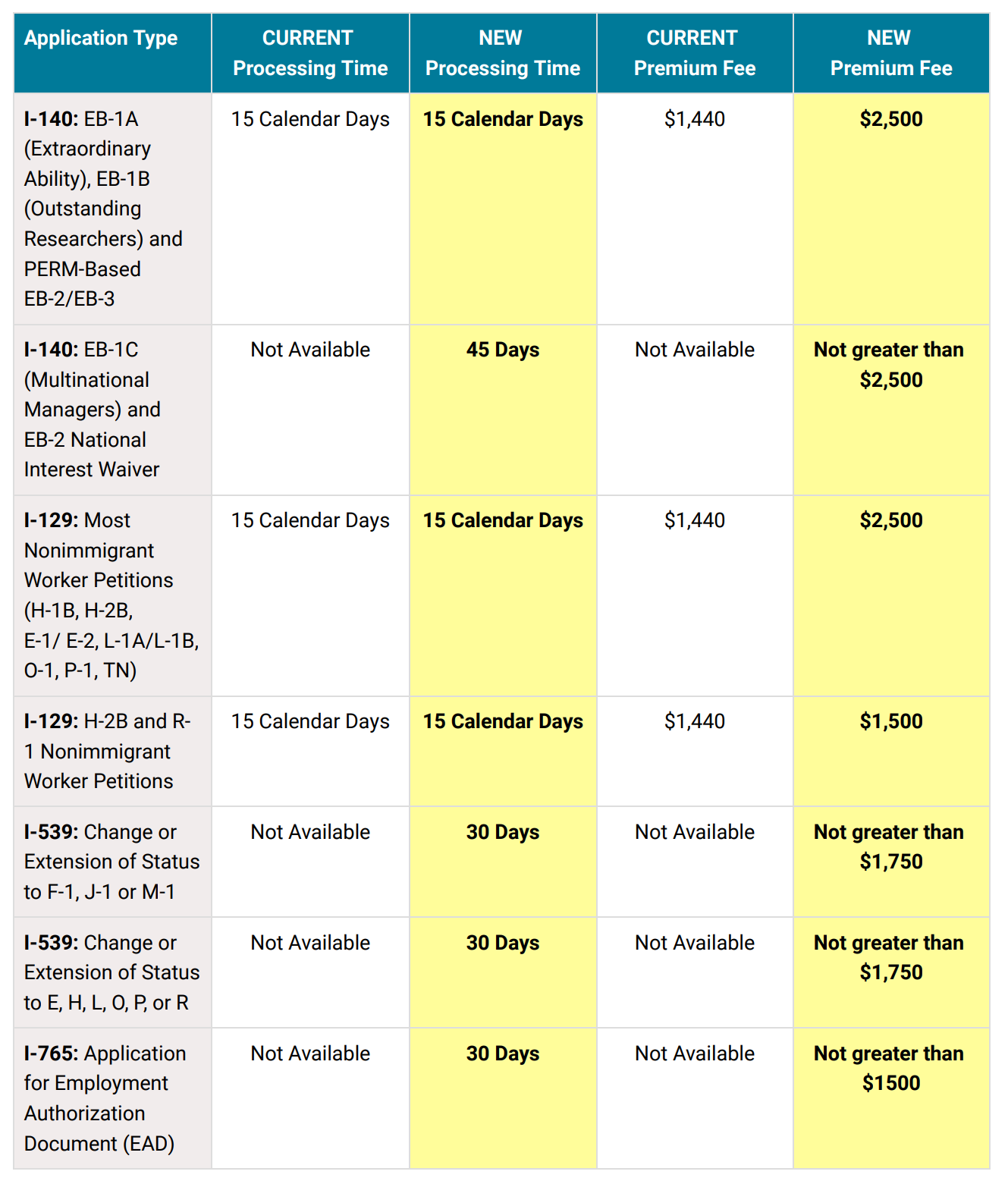Congress Expands Premium Processing Program to Additional Application Categories
/The New Premium Processing Law
As part of the year-end appropriations process, Congress passed legislation yesterday that will permanently expand the U.S. Citizenship and Immigration Services (USCIS) premium processing program, while also increasing program fees, and the legislation was signed into law by the president today.
How does the current premium processing program work?
The USCIS premium processing program currently allows employers and individuals to pay an additional $1,440 application fee to request expedited service (15 calendar days) for a limited list of immigration application types, including H-1B, H-2B, L-1A, L-1B, E-1, E-2, O-1, P-1, and TN nonimmigrant applications filed using Form I-129, as well as EB-1A, EB-1B, EB-2 (except NIW) and EB-3 I-140 immigrant petitions.
How will this new law expand premium processing benefits?
Under the new law, USCIS is directed to expand premium processing to most employment-based application categories, including applications for employment authorization (I-765) and applications to change or extend status (I-539) for the dependents of H-1B, L-1 and other principal nonimmigrant categories.
The premium processing fees will increase to $2,500 for all application types except H-2B (Temporary Non-Agricultural Workers) and R-1 (Religious Workers), which will increase to $1,500. But despite the fee increase, expanded options for premium processing will be a welcome benefit for many employers and individuals considering the lengthy USCIS application processing time delays currently in most immigration categories.
The new law also limits USCIS authority to suspend premium processing services, except in limited circumstances, and it also requires USCIS to provide petitioners and applicants with “direct and reliable” access to premium case status information and the ability to communicate with premium processing units at USCIS Service Centers.
New Premium Processing Fee and Timeline Comparison Chart
Why did Congress pass this law?
The increased revenue generated by the expansion of premium processing will help bolster USCIS operational funding, which is important considering the agency’s threat to furlough 70 percent of its employees due to a budget shortfall.
When will the expanded premium processing services become available?
The premium processing law is effective immediately, however, it will likely take several weeks or more for USCIS to implement the law. We expect USCIS will issue an announcement in the coming weeks that will provide guidance regarding when expanded premium processing will become available to petitioners and applicants, and what new application categories are eligible. In the meantime, the existing premium program for certain I-129 and I-140 petitions remains available.
Ellis Porter will continue to follow the implementation process for premium processing closely and we will provide updates as they become available.
Extension of Expiring Immigration Programs
The legislation that expanded the premium processing program, also extended four expiring immigration programs through December 11, including E-Verify, the EB-5 Regional Center Program, the Conrad 30 Program for foreign medical graduates who will work in areas of the United States that are underserved by physicians, and the Special Immigrant Non-Minister Religious Worker permanent residence program.


